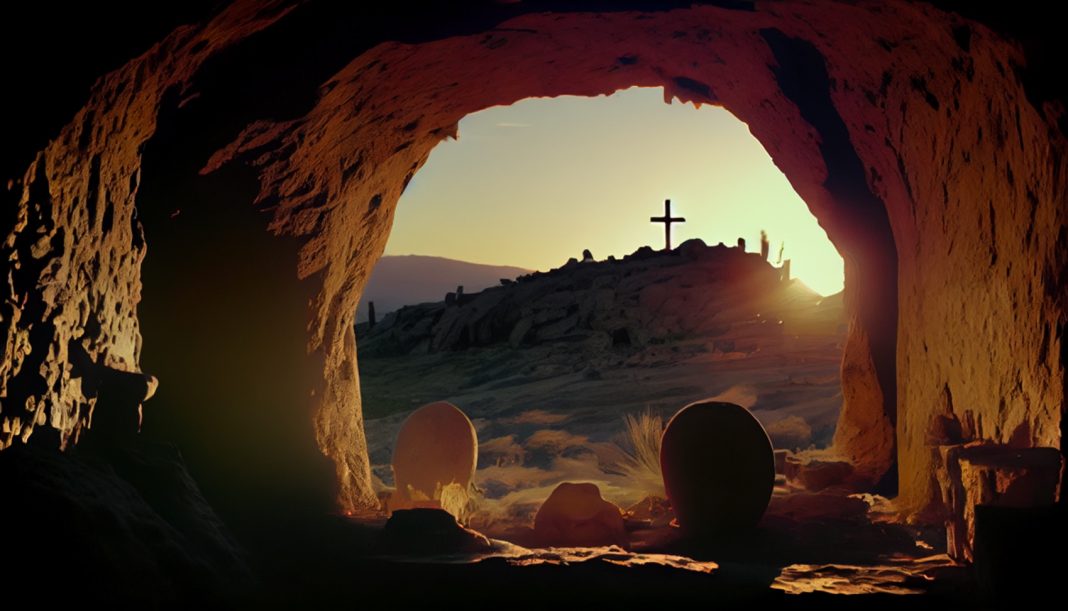Easter is not merely a celebration of springtime or a religious tradition marked by church gatherings and bright clothing. It is the heart of the Christian faith—the declaration that Jesus Christ, crucified and buried, rose from the dead on the third day. This single, earth-shattering event redefined humanity’s understanding of life, death, purpose, and hope. From the ancient tomb outside Jerusalem to the spiritual, cultural, and moral frameworks of modern civilisation, the resurrection has reverberated through history with transformative power.
This sweeping exploration considers Easter through four lenses: its biblical roots, theological significance, historical impact, and contemporary influence on moral thought and human purpose.
1. The Biblical Roots: Resurrection as Fulfilment
The resurrection of Jesus is not an isolated miracle—it is the culmination of God’s redemptive plan. The Old Testament foreshadowed it, the prophets proclaimed it, and Jesus Himself predicted it.
Isaiah 53:10-11 foretold that the suffering servant would “see the travail of his soul, and shall be satisfied,” pointing to life after death.
Psalm 16:10 declared, “For thou wilt not leave my soul in hell; neither wilt thou suffer thine Holy One to see corruption.”
Jesus reaffirmed this in John 11:25, saying, “I am the resurrection, and the life: he that believeth in me, though he were dead, yet shall he live.”
Easter morning affirmed every promise, validated every prophecy, and shattered every expectation. The stone rolled away became the divine punctuation mark at the end of a long, unfolding sentence of salvation.
2. Theological Implications: Life Conquering Death
The resurrection is not symbolic—it is the literal defeat of death. Paul makes this clear in 1 Corinthians 15, the longest chapter in the New Testament on resurrection, where he writes:
“If Christ be not raised, your faith is vain; ye are yet in your sins.” (1 Corinthians 15:17)
The resurrection accomplished several critical theological realities:
-
It validated Jesus’ identity as the Son of God. (Romans 1:4)
-
It secured our justification, proving the sufficiency of Christ’s atonement. (Romans 4:25)
-
It inaugurated new creation, as Christ became the “firstfruits of them that slept.” (1 Corinthians 15:20)
-
It redefined death, not as an end, but a door to eternal life. (John 5:24)
In essence, Easter is the cornerstone of Christian theology. Without the resurrection, Christianity collapses into moralism. With it, it becomes the unshakable declaration of redemption.
3. Historical Impact: The Rise of Hope in Western Civilisation
The resurrection not only birthed the Church—it reshaped the course of human history. The early Christians, empowered by the reality of a risen Christ, spread across the Roman Empire with a message that was both spiritual and revolutionary: that death had been defeated and eternal life was accessible to all.
This belief in resurrection shaped:
-
The dignity of the human body: Unlike Greco-Roman philosophy which viewed the body as disposable, Christianity saw it as worthy of resurrection.
-
The rise of charity: The value of each soul led to hospitals, orphanages, and care for the poor.
-
The idea of progress: Resurrection hope introduced a linear view of history moving toward restoration, unlike the ancient cyclic view of time.
-
Martyrdom and moral courage: People could face death unafraid, believing it was not the end.
The very roots of Western civilisation—its laws, ethics, and dignity of life—grew in the soil of an empty tomb.
4. Moral and Cultural Influence: Resurrection as Framework
In a world increasingly defined by despair, cynicism, and relativism, the resurrection stands as a defiant hope. It says that good triumphs over evil, that truth is not dead, and that our lives are not meaningless.
Easter redefines:
-
Identity: You are not your past; you are who Christ rose for. (2 Corinthians 5:17)
-
Purpose: You are not wandering; you are sent. (Matthew 28:19-20)
-
Morality: You are not your desires; you are called to holiness through grace. (Romans 6:4)
-
Hope: You are not doomed to decay; you await glory. (1 Peter 1:3-4)
In shaping how cultures understand forgiveness, justice, self-sacrifice, and the sanctity of life, the resurrection continues to inform moral imagination—even in secular contexts.
A Prayer for Resurrection Living
Risen Lord,
In Your victory, we find our hope.
In Your empty tomb, we find our purpose.
Help us to live as resurrection people—
Bold in love, steadfast in truth,
Joyful in suffering, and confident in Your promises.
Let Your resurrection power transform our hearts,
And renew the world through us,
Until the day we rise to see You face to face.
Amen.
In Conclusion
Easter is more than a date on the calendar—it is the turning point of the human story. The resurrection of Jesus Christ redefined what it means to live, to die, and to hope. It breathed life into a weary world, birthed a global movement of faith, and continues to shape hearts, societies, and civilisations.
May you never see Easter the same again. May the risen Christ fill you with purpose, ignite your faith, and empower you to live in the hope of the resurrection—today, and forever.







